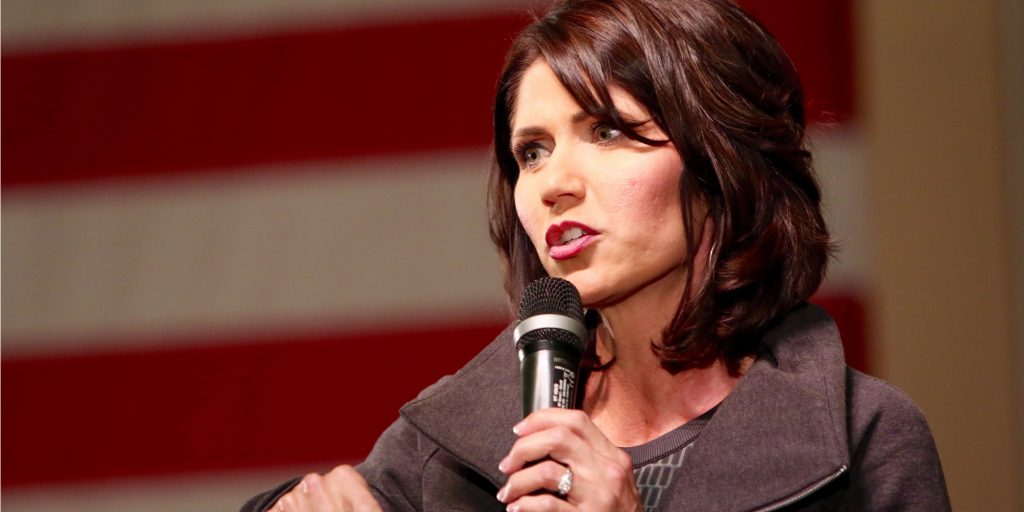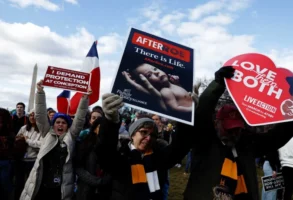
Published January 28, 2021
In South Dakota, Republican governor Kristi Noem has drafted a bill that would protect unborn children diagnosed with Down syndrome, the latest in a series of pro-life efforts to draw attention to the issue of selective abortion.
“God created each of us and endowed all of us with the right to life. This is true for everyone, including those with an extra chromosome,” Noem said in a statement rolling out the draft bill. She went on to urge “the South Dakota legislature to pass a law that bans the abortion of a preborn child, just because that child is diagnosed with Down syndrome.”
The legislation states that no one may provide an abortion “with knowledge that the pregnant woman is seeking the abortion because the unborn child either has been diagnosed with Down syndrome or has had a genetic screening indicating that the unborn child may have Down syndrome.” It explicitly provides that no woman who seeks or obtains such an abortion can face punishment, and offers an exception for abortions deemed necessary “to save the life of the pregnant woman because her life is endangered by a physical disorder, illness, or injury” that no medical treatment could resolve.
Noem’s proposal is just the latest overture in a growing, state-level campaign waged by pro-lifers against abortions chosen on the basis of a child’s sex or disability. The Sixth Circuit Court of Appeals, for instance, is expected to rule soon on an Ohio law banning abortions chosen after receiving a Down-syndrome diagnosis, and several other states have also recently attempted to pass protections for unborn children who receive such a diagnosis.
At the federal level, congressional Republicans introduced a bill similar to Noem’s in late 2019. And on Thursday morning, Representative Ron Estes (R., Kan.) unveiled the “Protecting Individuals with Down Syndrome Act,” which would prohibit any abortion performed “with the knowledge that a pregnant woman is seeking an abortion, in whole or in part, on the basis of . . . a prenatal diagnosis that the unborn child has Down syndrome.” Estes’s bill would also require abortion providers to ask a pregnant woman seeking an abortion whether she is aware of any test results or prenatal diagnosis suggesting that her unborn child has Down syndrome and, if so, informing her of the abortion prohibition. Violators would be subject to a fine or imprisonment of less than five years, and the law would prevent pregnant women from facing prosecution.
These efforts follow recent polling indicating that most Americans, including those who generally support legal abortion, oppose abortions chosen on the basis of an unborn child’s Down-syndrome diagnosis. According to a new Marist survey, 70 percent of Americans oppose such abortions, and a majority of self-identified pro-choice respondents and Democrats agreed.
In the U.K., too, there is strong support for a movement to regulate abortions chosen because of a prenatal diagnosis of Down syndrome, clubfoot, or cleft palate. In support of such a movement, U.K. mothers have been sharing their experiences of being pressured to choose abortion after receiving such a diagnosis or facing criticism from health-care professionals for declining to do so.
Abortion-activist groups here in the U.S. tend to vigorously oppose selective-abortion bans, calling abortion “a deeply personal and often complex decision that must be left to women” and ignoring the discrimination involved in sex-selective or disability-based abortions. Critics of proposals such as Noem’s have also argued that they could have a limited effect if they spurred women to keep their motivations for seeking an abortion private.
Because South Dakota requires that every proposed bill receive a hearing, Noem’s draft legislation will next be taken up for review by the state House’s Committee on State Affairs.
Alexandra DeSanctis is a staff writer for National Review and a visiting fellow at the Ethics and Public Policy Center.








